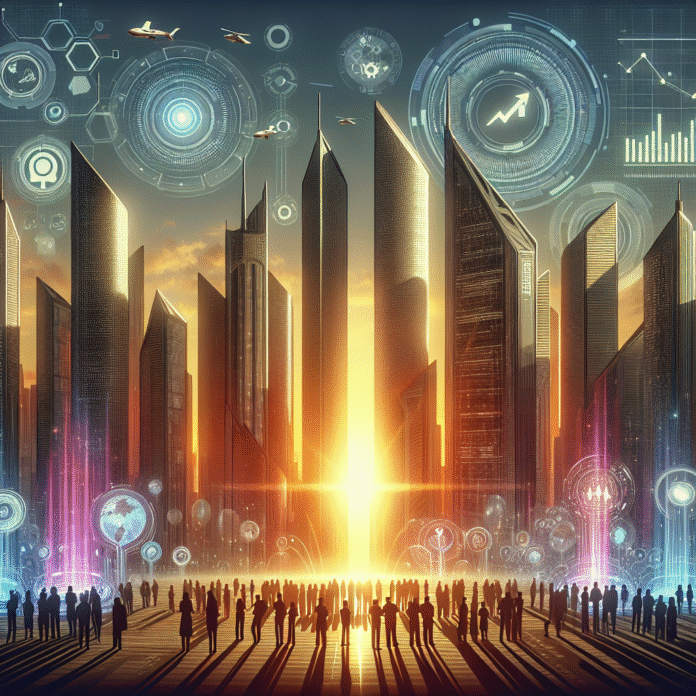In a rapidly evolving digital landscape, the convergence of technology giants is transforming industries across the globe. From artificial intelligence (AI) to blockchain, the collaboration among tech titans is not only reshaping traditional business models but also laying the groundwork for a more sustainable and efficient future. This article delves into the key innovations and partnerships that are shaping the future of industry.
The Rise of Collaborative Platforms
Major tech companies are increasingly joining forces to create platforms that facilitate collaboration and sharing of ideas. Initiatives like the OpenAI consortium have fostered innovation by allowing diverse organizations to pool resources and expertise. These collaborations empower startups and smaller firms to leverage cutting-edge technology without the overwhelming costs associated with research and development.
Blockchain and Decentralization
Blockchain technology has emerged as a game-changer across various sectors, including finance, supply chain, and healthcare. Tech giants like IBM and Microsoft are heavily investing in blockchain solutions that enhance transparency and efficiency. For instance, IBM’s Food Trust Blockchain improves traceability in the food supply chain, allowing consumers to track the origin of their food. Such innovations not only streamline operations but also build trust between consumers and providers.
Artificial Intelligence and Automation
AI is at the forefront of industrial innovation, with tech titans like Google, Amazon, and Microsoft leading the charge. Machine learning algorithms are enabling businesses to analyze vast datasets, forecast trends, and optimize operations. For example, AI-powered predictive maintenance in manufacturing reduces downtime and costs by identifying equipment issues before they escalate.
Moreover, automation driven by AI is revolutionizing labor markets. While concerns about job displacement are valid, the creation of new roles and opportunities to upskill workers can lead to a more dynamic labor landscape. Several tech companies are actively partnering with educational institutions to provide training in AI and automation technologies, ensuring a workforce ready for the future.
Sustainability and Green Tech
Sustainability is no longer a buzzword; it’s a necessity. Collaborations among tech titans are proving essential in advancing green technologies. Companies like Tesla and Google are spearheading initiatives to minimize carbon footprints. Tesla’s innovations in electric vehicles are complemented by Google’s investment in renewable energy sources for data centers.
Furthermore, partnerships aimed at improving energy efficiency in manufacturing processes are gaining traction. The Siemens and Schneider Electric collaboration, for instance, is focused on smart grid technology, enhancing the efficiency of energy consumption and facilitating the transition to renewable sources.
Future of Work and Remote Collaboration
The COVID-19 pandemic accelerated the adoption of remote work, making collaborative technologies more important than ever. Tech companies are investing heavily in solutions that enhance virtual collaboration. Platforms like Microsoft Teams and Slack have evolved to integrate AI and automation features, facilitating seamless communication across teams regardless of physical location.
Challenges and Ethical Considerations
While the innovations driven by these tech collaborations are promising, they also raise important ethical questions. Issues surrounding data privacy, surveillance, and algorithmic bias need to be addressed. As tech giants unite, establishing a framework for ethical guidelines in technology development is crucial to ensure that innovation benefits society as a whole.
Conclusion
As tech titans continue to unite and innovate, the future of industry promises to be dynamic and interconnected. Collaborative platforms, advancements in AI and automation, sustainability efforts, and new ways of working are just a few examples of how these innovations are reshaping the landscape. While challenges remain, the collective strength of these partnerships holds the potential to create a future that is not only technologically advanced but also inclusive and sustainable. As we move forward, the emphasis on responsible innovation will be key in ensuring that the intersection of technology and industry remains beneficial for all.






